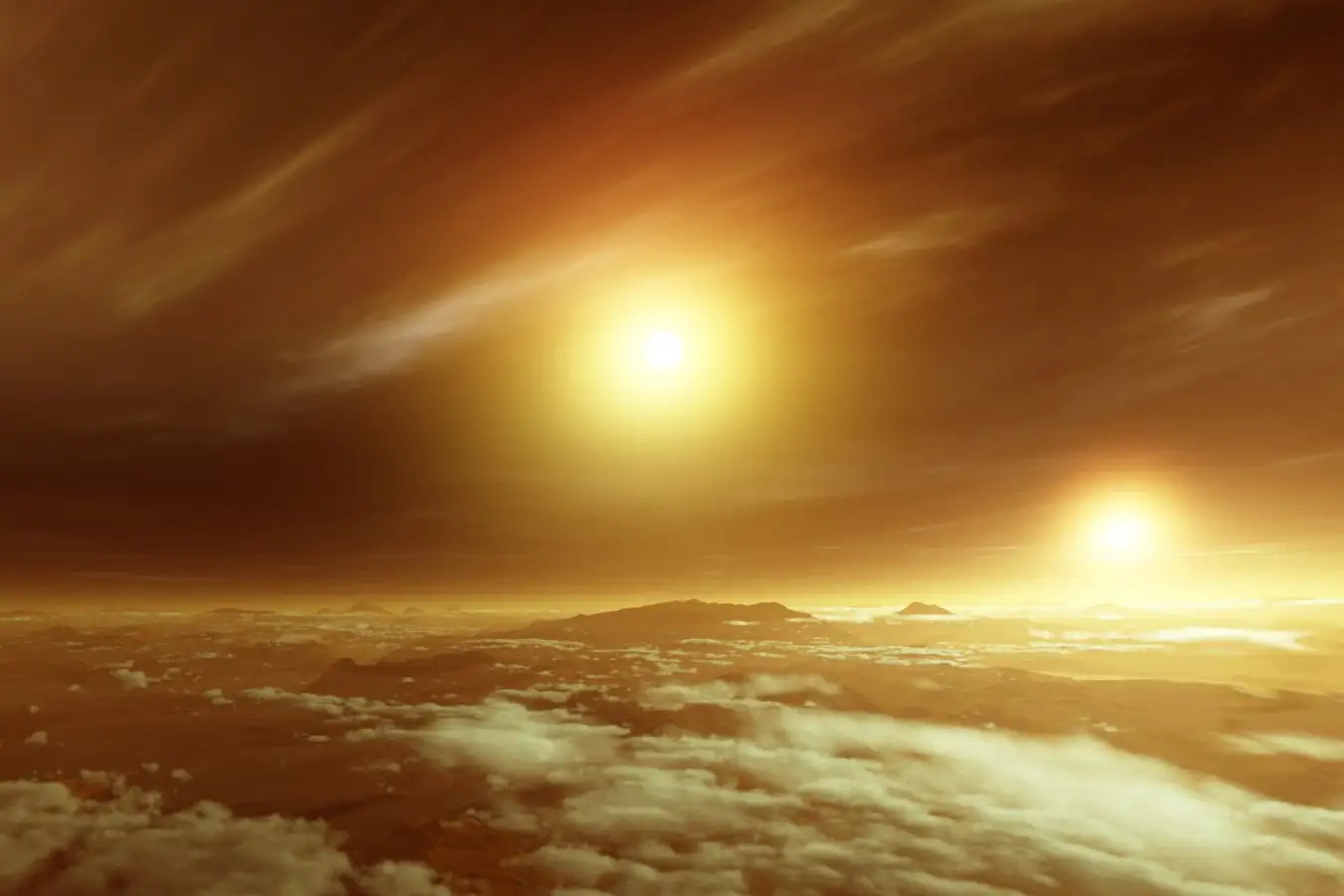
It’s bad luck for those living on Adjumir, which is set to be obliterated
DETLEV VAN RAVENSWAAY/SCIENCE PHOTO LIBRARY
Slow Gods
Claire North, Orbit
Claire North is a successful and prolific novelist, writing under three separate names, but this is their first shift into classic science fiction, i.e. a novel with spaceships in it. I loved the title of this book, Slow Gods, and I loved the cover art. All of which is to say that I went in with high hopes.
It begins: “My name is Mawukana na-Vdnaze, and I am a very poor copy of myself.” A great start.
After that, I got a bit lost for about 60 pages. It is an epic space opera and there were so many timelines, cultures, names… Par for the course in a space opera, obviously, but I hadn’t yet bonded with the main character, a deep-space pilot with an exceptional flight record, but a poor history when it comes to not murdering people. Maybe I just wasn’t in the right mood. I pushed on a bit. And then the hero, Maw, met a person called Gebre, and I was in.
I am going to leap ahead now: READ THIS BOOK. If you love sci-fi, it is for you. It is brilliant. If, like me, you are unsure at first, push on!
Since I do actually have space for a few more words here, I will elaborate on these assertions. It has been a while since I have read a piece of science fiction so purely delightful. That isn’t to say it is just fun; it also manages to be both moving and profound. Oh, and it is beautifully written.
North is superb at very detailed world-building and galaxy-wide plots, but also at character and feeling. Humour, too, and in the grand tradition of Iain M. Banks, there are some lovely artificial intelligences/drones here serving as comic foils.
“
Slow Gods also has excellent villains with bad attitudes and deadly kit, like city-killing ‘blackships’
“
Maw is an exceptional protagonist. It is always good, as a reader, when you have no idea what your hero is capable of, but you suspect it is something pretty dramatic. After an incident in deep space on their first mission as a pilot, Maw keeps dying… and then coming back to life. This will happen, it turns out, as long as no one is looking at their dead body or mourning them. It is unlikely that Maw is still human, although they mostly look like they are.
So, back to that meeting with Gebre… Maw has agreed to pilot a ship to Adjumir, a planet that is soon to be destroyed by the collapse of LK-08091881, a binary star system.
A mysterious god-like maybe-machine called the Slow did actually warn everyone that the star system was about to collapse and that the resulting shock wave would travel out at the speed of light and “obliterate all life with an eighty-three light-year radius”. The problem is that the response to this warning across the afflicted zone has, at best, been patchy, and when Maw lands on Adjumir in its last days, there are still people there. Billions of them. All hoping that their number will be called in a lottery so they might escape.
And so Maw meets Gebre Nethyu Chatithimska Bajwahra. Gebre is currently “numberless”, but they aren’t focused on that. They just want to save vital artefacts so that future generations will be able to find out about the true history of Adjumir.
Gebre is a deeply appealing character and Maw falls hard for them. What might they do to protect Gebre? Or even to avenge them? Our scene is set.
I should mention there is also The Shine, excellent villains with bad attitudes and deadly kit, including near-invisible, city-killing “blackships” and super soldiers.
As mentioned: read this book!
Emily also recommends…
Consider Phlebas
Iain M. Banks, Orbit
Slow Gods reminded me many times of Banks’s Culture novels, so this is the natural “also recommends” that arises from it. Normally, for readers new to the Culture, I recommend The Player of Games. But this is also a very friendly start to the series for the new reader, as well as actually being the first Culture book Banks wrote. It concerns a man named Horza who can shapeshift, becoming a perfect copy of anyone around him. Who would need to know more?
Emily H. Wilson is a former editor of New Scientist and the author of the Sumerians trilogy, set in ancient Mesopotamia. The final novel in the series, Ninshubar, is out now. You can find her at emilyhwilson.com, or follow her on X @emilyhwilson and Instagram @emilyhwilson1
Topics:
Source link : https://www.newscientist.com/article/mg26835680-400-deep-space-sci-fi-novel-is-delightful-profound-and-not-to-be-missed/?utm_campaign=RSS%7CNSNS&utm_source=NSNS&utm_medium=RSS&utm_content=home
Author :
Publish date : 2025-11-05 18:00:00
Copyright for syndicated content belongs to the linked Source.